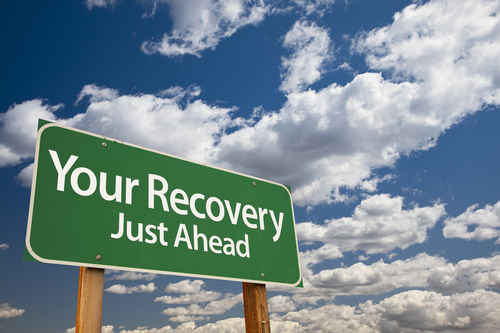CSMA Clovis drug rehab centers use a wide variety of addiction treatment options in the Fresno County area. These treatment facilities offer personalized treatment plans to address the special requirements of each individual struggling with substance abuse problems. With facilities and therapy programs comparable to those found in luxury rehab centers, our Clovis drug rehab centers offer evidence-based therapy like behavioral therapy and medication-assisted treatment to ensure the best possibility of recovery.
At CSMA, we believe that financial constraints must not prevent one’s journey toward sobriety. Thus, several payment accepted options are available to make treatment financially possible. Especially, for individuals with private health insurance, many treatment centers accept this mode of payment.
CSMA comprehends the value of making rehab financially possible. As a result, people with medical insurance can use their insurance for this life-altering journey. Overcoming addiction does not have to be a financial concern, and CSMA accepts most health insurance plans as a payment alternative.
Getting aid with addiction is a journey, but it’s a journey you don’t have to take alone. If you or a loved one is seeking help for addiction, remember that help is offered.


Addiction treatment is all about patient-centric care, administered by a team of certified professionals who understand that every person’s journey with addiction is different. It varies not just in regards to the degree of drug addiction but likewise their lifestyle, psychological make-up, and familial and social environments. A well-rounded treatment method demands a deep understanding of these factors.
Therapy is an effective tool in addressing the psychological elements of addiction. At our Clovis addiction centers, therapy is tailored to an individual’s requirements and can include:
- Cognitive-behavioral therapy
- Individual therapy
- Family therapy
These therapeutic interventions equip individuals with coping strategies to avoid triggers and tools to keep sobriety in the long term.
Drug addiction can have an extensive impact on a person’s life but also their friends and family. Family therapy can be essential in the recovery process, assisting households understand addiction and the function they can play in their loved one’s recovery. Individual and group therapy sessions are essential to the addiction treatment process here.
Another vital aspect of holistic treatment is physical wellness, that includes nutritional counseling and exercise routines. These physical elements considerably affect a person’s general health and recovery procedure. Adjusting to a healthier lifestyle can drastically decrease drug cravings and reduce the risk of relapse.
Long-term recovery from drug addiction requires constant support even after initial treatment. We value this and offer aftercare services and follow-up programs to ensure long lasting sobriety. These extensive follow-up processes are important to prevent any possibility of regression and to hold the individual responsible for their recovery.
Drug addiction can feel frustrating, however it’s essential to bear in mind that recovery is achievable. Clovis Rehab Centers understand the importance of this journey and deal detailed treatment solutions to guarantee a return to a healthy and productive life free of alcohol and drugs.


At CSMA, the addiction treatment methods deeply integrate physiological, psychological, and way of life aspects, ensuring individuals can adjust to life after detox. The counselors and treatment professionals at CSMA work collaboratively with clients to create an impactful and effective treatment plan post-detox. CSMA’s rehab centers have erudite addiction treatment professionals. Their wealth of experience and knowledge make browsing withdrawal and subsequent addiction treatment more manageable and efficient. The addiction treatment experts understand detox’s physical and psychological obstacles and aftermath.
They offer customized services to meet each individual’s specific needs and circumstances. Our rehab centers are equipped with a variety of therapy alternatives for addiction treatment. These include:
- Group therapy
- Individual counseling
- Cognitive-behavioral therapy
- Motivational interviewing
Incorporating these therapies into a personalized addiction treatment plan boosts the probability of a successful recovery after detox.
CSMA Rehab Centers are helpful, non-judgmental environments where those undergoing detox and looking for addiction treatment can feel safe and safe and secure. They are sanctuaries where clients can welcome a substance-free way of life after detox. The addiction treatment services used foster strength, mentor patients to deal with daily stressors without going back to substance use after detox.
In conclusion, life after detox in Clovis’s Rehab Centers is absolutely nothing to dread, thanks to the attentively created addiction treatment approaches that cater to individual requirements.
Experienced professionals, holistic therapy choices, and thoughtful environments make the journey from detox to addiction treatment to recovery less burdensome.
Among our rehabilitation centers’ crucial identifying functions is their holistic treatment method. They do not simply depend on the detox process as the complete option to addiction. Instead, they advocate and carry out a thorough recovery strategy, promoting physical, mental, and spiritual health as crucial elements of a person’s total well-being. This robust post-rehab life strengthens the person’s resolve to prevent substance usage, guaranteeing an effective social transition.
Our Clovis, CA treatment facilities are staffed with a devoted team of professionals who bring a wealth of knowledge and hands-on experience. This expertise contributes exceptionally towards developing customized rehab and recovery strategies to address each homeowner’s special requirements and difficulties. These professionals provide consistent care and guidance, ensuring residents navigate their rehab journey with very little hiccups. These teams of professionals have actually unquestionably added to numerous successful rehab cases in Clovis’s rehab facilities, cementing the city’s track record as a trusted place for comprehensive rehabilitation.
Whether it is drug abuse or other forms of addiction, repeated rehab efforts will be required for some patients. CSMA reassures those seeking help that their rehabilitation is our priority, no matter how challenging the journey may seem. This commitment to rehab and recovery can be seen in the tremendous efforts to improve the rehabilitation approaches, broadening the support systems and mental health resources readily available to residents on their course to recovery.
The devotion to rehab and recovery in our Clovis, CA rehab centers lines up with our overall vision of a healthy and productive community. Our efforts in healing and recovery stand out in the area of mental health, wherein tailored treatment programs are developed keeping individuals’ specific needs in mind.


Our technique to addiction treatment in Clovis, CA continues to progress, incorporating the most recent research and treatments to guarantee a high success rate. This multi-pronged technique has actually led lots of individuals to maintain a drug-free life after treatment. Our intensive outpatient and inpatient programs focus on getting rid of substance abuse and addressing the underlying issues that led to addiction in the first place.
The Clovis addiction treatment programs include numerous techniques such as detoxification, behavior modifications, counseling, alternative treatments, and consistent support even after treatment. The journey to a drug-free adult life is undoubtedly challenging, and with the constant support offered by our Clovis rehab centers, the journey ends up being possible and sustainable.
While passing through the path of recovery, individuals gain a brand-new point of view and outlook on life. They can rebuild their lives, re-establish healthy relationships, pursue their interest, and regain control of their life once controlled by drugs.
Addressing drug addiction benefits the afflicted individuals and the society at large. It removes the social expenses of drug addiction and contributes to a healthier and more vibrant community.
Whether you or your enjoyed one is embarking on a drug-free life, this transition is a formidable procedure that requires support, understanding, and empowerment. This is precisely what CSMA rehab centers pledge to provide to individuals battling with substance abuse.
At CSMA, we constantly make every effort to provide the optimal level of client care and support, showing our core belief in the possibility of recovery and a drug-free life.
FAQs
Drug Rehabs Near Clovis CA






